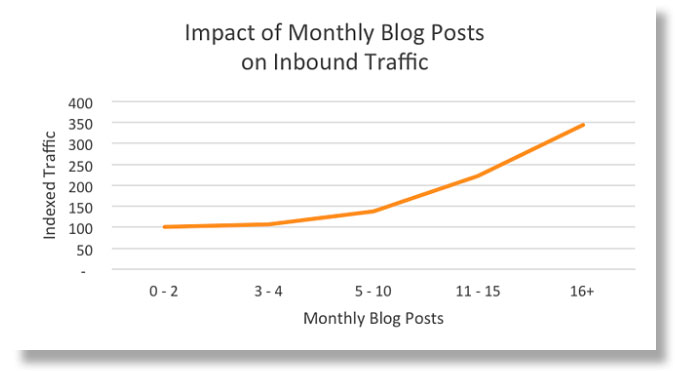Search engine marketing or SEM involves improving your organic search engine rankings and search engine advertising through PPC campaigns or other engagements.
The importance of SEO copywriting rests in the fact that it improves the quality of your SEM strategy from multiple angles.
Many businesses use a combination of organic SEO and paid search engine placements.
I have observed that if you initially pay Google for placements, even your organic search engine rankings begin to appear faster in the search results.
Hence, it is better that if you have just started publishing quality content and Google hasn’t yet started crawling and indexing your content on regular basis, you can gain quick visibility through running up few PPC campaigns.
How does SEO copywriting help you in SEM? Why is it important?
As mentioned above, how you define search engine marketing depends on your strategy.
You may want to completely depend on improving your organic search engine rankings.
You may not want to spend a lot of money and effort on high quality content, but you quickly want to increase your search engine visibility and you’re ready to pay for every click that you get.
Normally this happens when people are not aware of the benefits of improving their organic search engine rankings through strategic SEO copywriting and instead, they want to go for a quick fix.
Paid advertising is costly. You are paying for every click.
The search engine users know that since you cannot improve your rankings naturally, you are paying to increase your visibility.
Hence, trust factor is lower compared to organic SEO.
I’m not saying that you should refrain from paid search engine marketing altogether.
In fact, you can make strategic use of it.
But you shouldn’t make it into a major search engine marketing strategy.
The ultimate goal is to improve your SEO organically, and this is where SEO copywriting can help you.
Below I am listing a few reasons why SEO copywriting is important for your search engine marketing strategy whether you want to pay for your visibility you want to improve your SEO organically.
SEO copywriting reduces your PPC costs
When you pay Google for your search engine placements, you have a PPC arrangement.
There are also other modes of advertising, but this is the most prevalent one.
You pay for every click.
Your listing appears in the “sponsored” section.
Google declares it openly that you are paying for the placement and your content is not appearing in the search results because of its inherent quality and relevance.
This happens with every search engine. I’m using the name of Google because it is one of the most used search engines in the world with more than 97% market share.
So how does effective SEO copywriting reduce your PPC costs?
In two ways:
- Through actual reduction in the amount of money you pay per click.
- Through improving your ROI – you generate more business per click.
It is in Google’s interest that more people click your sponsored link because you are paying for every click.
But then, after a while, it will be counter-productive because paying for every click will prove to be so expensive that you may have to deactivate your campaign for a while.
Google doesn’t want to kill the goose that lays golden eggs.
Hence, it rewards you by reducing your PPC rate if your placement generates more clicks.
The amount of money that you pay is inversely proportional to the number of clicks you can generate.
Through efficient copywriting, you can make more people click your paid placements and as a result, end up paying less to Google.
Suppose, initially you pay $ 0.5 per click for your current placement.
The copy of your ad is really good and it encourages more people to click your advertisement.
After a while, Google begins to charge you $ 0.45 per click for the same position.
This way, Google will go on decreasing your PPC if more people click your ad.
This is one way copywriting brings down your search engine marketing costs if you are paying for your placements.
The other way is by increasing your ROI.
In a PPC campaign, you use aMr landing page.
If you get 100 clicks from Google, you expect to make at least 5 sales.
If your SEO copywriting is not convincing, you may make 2-3 sales per 100 clicks, or even less.
If your copywriting is convincing, you may make even 10 sales per 100 clicks.
Hence, the success of your PPC campaigns depends on how convincing and well written the copy on your landing page is.
SEO copywriting organically improves your rankings for your main keywords
You need to resort to paid advertising on Google because you don’t have good organic search engine rankings for your main keywords.
If your links naturally appear in the SERPs, then there is no need for you to pay for the placements.
Just imagine – if you go for paid placements, you are paying for every click.
Referring to the above example, if you are paying $ 0.5 per click, for 100 clicks, you will be paying $ 50. For 1000 clicks, you will be paying $ 500. And so on.
But what happens if you organically improve your search engine rankings?
People can find your links among the top results and when they click your links, you don’t pay for those clicks.
Hence, whether you get 100 clicks or 10,000 clicks, your cost doesn’t increase.
In fact, it is free traffic.
Can you easily increase your rankings for your primary keywords?
Not if you have great competition.
For example, if I want to improve my search engine rankings for “SEO copywriting services”, it may be very difficult because top content writing and copywriting services are already ranking quite high compared to my website.
So, what do I do?
This brings us to the next topic…
SEO copywriting organically improves your rankings for longtail and related keywords
While you continue with your effort of improving your rankings for primary keywords, you should first focus on improving your rankings for longtail and related keywords.
Hence, instead of aiming for “SEO copywriting services”, I may aim for “The top 10 benefits of SEO copywriting”.
If you’re running a real estate business in Mumbai, instead of trying to just improve your rankings for “real estate business in Mumbai” you can write content around “Why it makes sense to work with a local real estate business in Mumbai”.
Longtail keywords may not directly bring your business, but they increase your visibility and then this visibility brings you business.
If you publish informative content covering your longtail keywords, other websites and blogs have a reason to link to your website or share your link on their social media timelines.
This brings you the much needed visibility.
When people link back to you, it also improve your search engine rankings for your primary keywords.
Effective SEO copywriting brings down your bounce rate
Your bounce rate has a direct impact on your search engine rankings.
Your bounce rate tells Google whether you have valuable content on your website or not.
If people immediately leave your website after finding your content in search results, it tells Google that people are unable to find what they’re looking for, for the keyword they are using and finding your content.
Here is a small video that explains the relationship between your bounce rate and search engine rankings:
Hence, your content begins to lose its current rankings for the keyword.
Again, I will give my own example.
If someone searches for “best SEO copywriting services in my area” and comes to my website and within a few seconds goes back to Google to carry on the same search, Google downgrades my current rankings for the search term “best SEO copywriting services in my area” because it assumes that my website doesn’t have relevant information for the topic.
On the other hand, for the same search term when someone finds my link and goes to my website and spends some time going through my web page and even explores other webpages for a few minutes, it tells Google that my website has relevant information and consequently, it upgrades my rankings for the same search term.
This is how your bounce rate affects your current search engine rankings.
Relevant SEO copywriting gets you more backlinks
Getting authoritative backlinks is an inalienable part of your SEM.
What motivates people to link to your content?
Relevance. Value. Engagement. Topicality. Authority.
All these attributes can be incorporated through relevant SEO copywriting practices.
Concluding remarks
SEO copywriting is a big part of your search engine marketing strategy.
It renders a direction to your SEM.
It brings down your costs.
It gives you lasting search engine visibility once you have been able to convince Google that your content is relevant for particular keywords and search terms.








